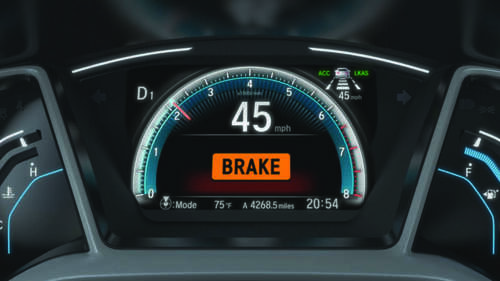
This week, the National Highway Traffic Safety Administration decided to expand an ongoing investigation into the alarming tendency of some modern Hondas to inappropriately trigger their automatic emergency braking systems. Studies have shown that automatic emergency braking systems have reduced road deaths in the US, Europe, and China, but so-called phantom braking problems have dogged systems from both Tesla and Honda.
We first learned of the problem in 2022, when NHTSA opened a preliminary investigation into the matter, based on 278 complaints. Now, NHTSA’s Office of Defects Investigation has received 1,294 complaints from drivers of Honda CR-Vs (model years 2017–2022) and Honda Accords (model years 2018–2022), all claiming that their Hondas’ automatic emergency braking system slammed on the brakes with no apparent obstruction in the way.
Honda says it’s aware of even more cases—1,991 in all, and NHTSA says that, when it takes out cases where multiple reports affect the same vehicle, it knows of 2,976 reports of inadvertent automatic emergency braking, with 93 injury reports and 47 crashes to date.
Now, NHTSA’s ODI has upgraded the case to a full engineering analysis and includes the model year 2018–2022 Honda Accord, model year 2018–2022 Honda Accord Hybrid, model year 2017–2022 Honda CR-V, and model year 2020–2022 Honda CR-V Hybrid—all told, about 3 million cars on US roads.

